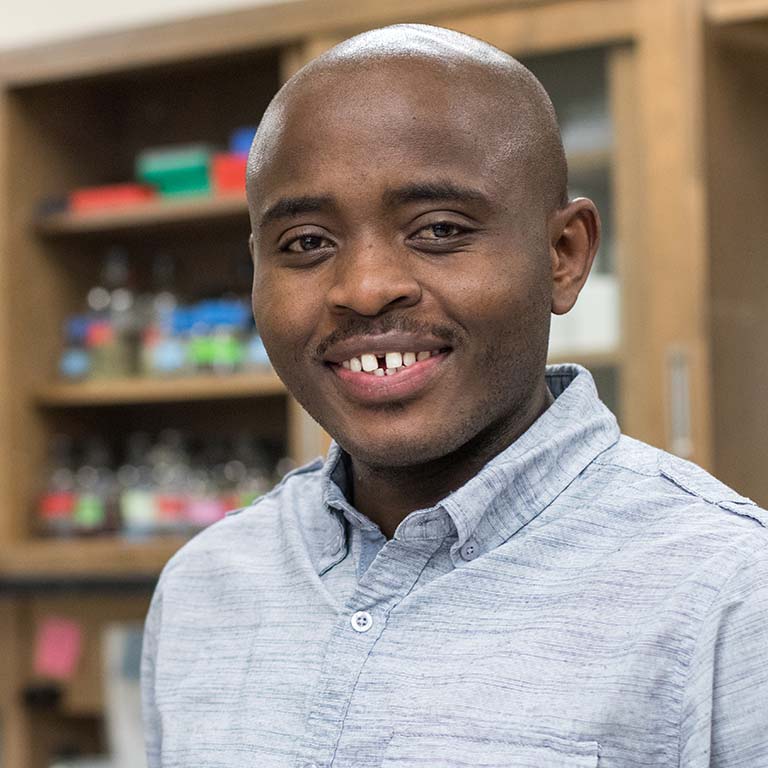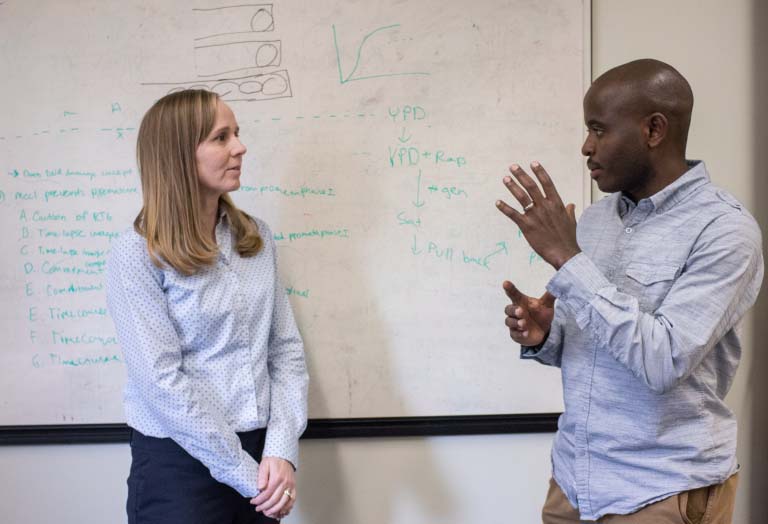View original story from source
Gabriel Muhire Gihana considers graduate education at IU a "unique privilege."
Born and raised in Africa, where advanced academic research opportunities can be limited, Gihana is now a Ph.D. student studying cell biology in the IU Bloomington College of Arts and Sciences' Department of Biology. Recently, he was awarded both IU's Alfred Parson Mower Fellowship and a dissertation fellowship from the IU College of Arts and Sciences.
But the Rwanda native said he wouldn't have found his passion for research without help from others along the way. This guidance has inspired him to help others from similar backgrounds access educational opportunities in the U.S.
"I had fully funded scholarships from high school to college," Gihana said. "Otherwise, I wouldn't be here at all. I was blessed in the sense that I could do well in my classes, so people wanted to see me move forward.
Gihana's path to a Ph.D. began in high school, where his principal helped him obtain a scholarship to complete his education at a difficult financial time. He also received a merit-based scholarship to complete his undergraduate studies in the U.S. from a partnership between the government of Rwanda and California Baptist University in Riverside, California.
After his sophomore year, professor Dennis Bideshi encouraged him to pursue academic research. Gihana then attended a summer research program at MIT and later met a recruiter from IU at a research conference. Attracted to the programs and the resources at IU, Gihana decided it was the right fit.
But after arriving in Bloomington in 2013, he noticed a lack of African students in the biology graduate program. A former classmate and Rwanda native at California Baptist, Vincent Mwumvaneza, made a similar observation at the University of Illinois.
In response to this relative lack of African students in U.S. graduate research programs, the duo decided to give back.
"It comes down to two things," Gihana said. "First, African college students lack information; many simply don't know these programs exist. Secondly, they lack exposure. Those who apply and can do all the tests are not prepared because they haven't been exposed to research. We decided to come up with a solution that would provide information and exposure."
They call their solution AFRISNET, or African STEM Network, a website under development geared toward African students or professionals who are interested in graduate or doctoral programs in STEM fields. The goal is to provide resources, information and assistance to African students seeking academic opportunities or internships.


 The College of Arts
The College of Arts